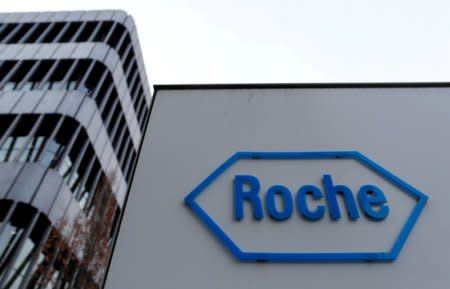Roche: Tecentriq cocktail slows kidney cancer progression

Thomson Reuters
By John Miller
ZURICH (Reuters) - Combining Roche's Tecentriq immunotherapy with its older drug Avastin reduced the risk of disease worsening or death (PFS) for the initial treatment of advanced kidney cancer in some patients, the Swiss drugmaker said on Monday
The latest trial result, the detailed results of which Roche plans to release in 2018, comes atop data last week showing a Tecentriq cocktail also slowed disease progression in first-line lung cancer treatment.
Tecentriq, whose sales pale compared to established immunotherapies from Bristol-Myers Squibb and Merck & Co Inc, is a pillar of Roche's plan to replace revenue from its $20 billion-per-year trio of Avastin, Herceptin and Rituxan whose expiring patents have exposed them to cheaper competition.
As a consequence, Roche is seeking to expand indications and patients eligible for treatment with its drug, which analysts see topping $4.6 billion in annual sales by 2023.
"We are encouraged by these results as they add to the emerging body of evidence that supports our rationale for this combination," said Sandra Horning, Roche's chief medical officer.
"We believe that the regimen of Tecentriq and Avastin may enhance the potential of the immune system in the initial treatment of advanced kidney cancer."
Even so, some analysts have expressed doubt that Tecentriq's study results so far have adequately differentiated it from Merck's Keytruda or Bristol-Myers Squibb's Opdivo for it to dominate the market for drugs that help the immune system better fight cancer.
(Editing by Michael Shields)
See Also:

 Yahoo News
Yahoo News 
